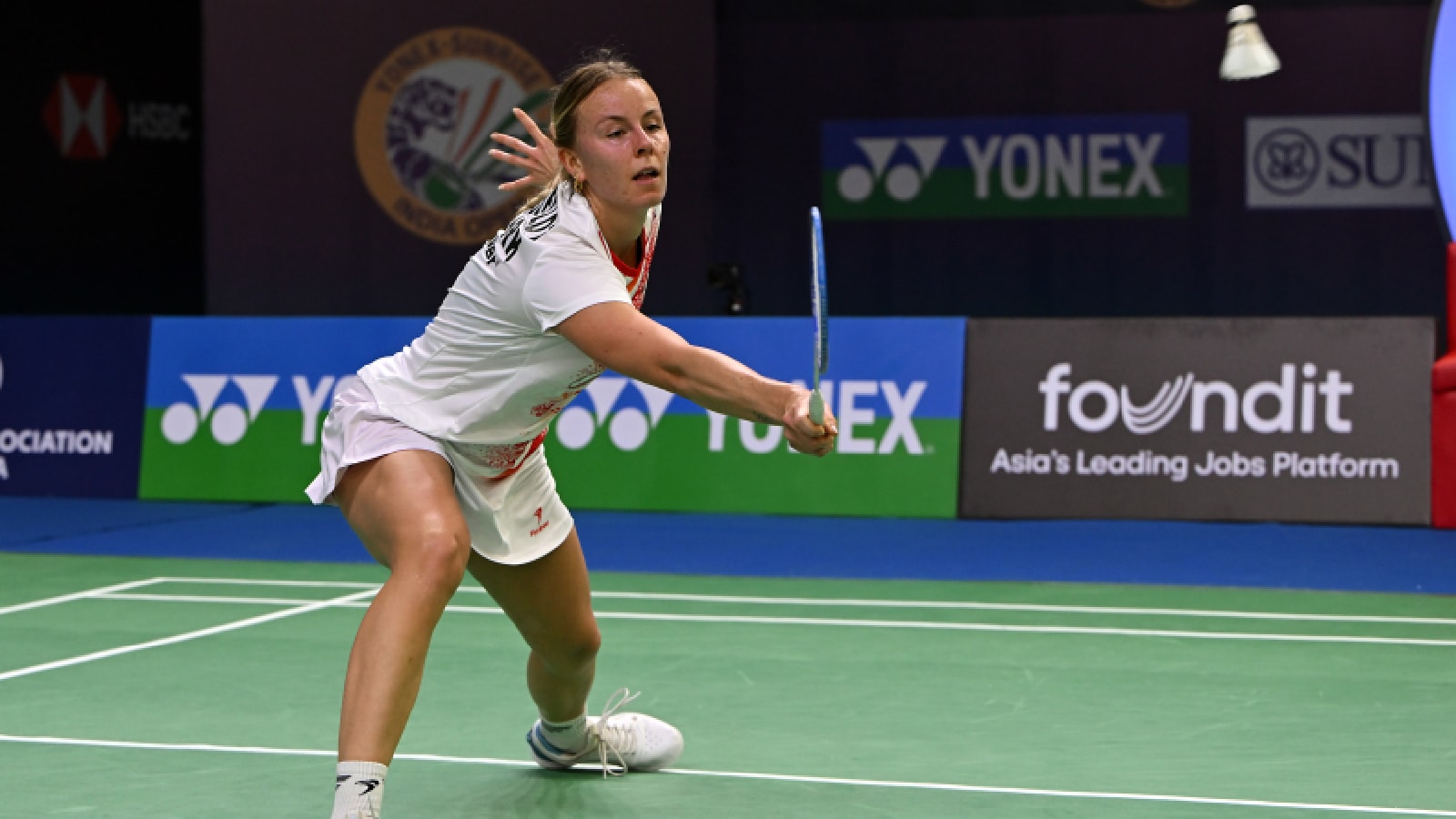 |
|
The India Open Super 750 badminton tournament, held in New Delhi, has been marred by controversy surrounding the playing conditions. Mia Blichfeldt, a world-ranked Danish shuttler, voiced strong criticism regarding the poor air quality, unsanitary court conditions, and overall health risks associated with competing in the event. Her complaints, shared on social media, detailed issues such as smog, bird droppings on the court, and general dirtiness, culminating in illness for her during the tournament for the second consecutive year. This is a significant concern, highlighting a systemic problem that impacts not only the athletes' performance and well-being, but also the reputation of the prestigious India Open itself. The incident underscores the need for improved infrastructure and stringent health and safety measures in international sporting events.
Blichfeldt's experience wasn't an isolated incident. Other players, such as the French mixed doubles pair of Thom Gicquel and Delphine Delrue, also commented on the less-than-ideal conditions, citing the cold weather and high pollution levels as significant challenges. These reports paint a picture of an event hampered by environmental factors and subpar venue maintenance, raising questions about the adequacy of preparations and the overall responsibility for ensuring a conducive playing environment. The comments from athletes reflect not only their physical discomfort but also the emotional toll of preparing meticulously only to find their efforts undermined by uncontrollable external factors.
In response to the widespread criticism, the Badminton Association of India (BAI) issued a statement acknowledging the challenges posed by the venue's limitations. Sanjay Mishra, Secretary of the BAI, explained that the association only gains access to the Indira Gandhi Indoor Stadium four days before the tournament, creating significant logistical obstacles. The BAI further announced their intention to explore alternative venues in consultation with the Badminton World Federation (BWF), demonstrating a commitment to addressing the concerns and improving the tournament’s infrastructure and management in the future. This suggests a proactive approach by the BAI to prevent similar issues from recurring and to maintain the integrity and reputation of the India Open as a globally significant badminton event.
The incident highlights a wider issue of infrastructure and venue management within the context of international sporting events. The reliance on existing facilities, coupled with limited access and potential maintenance issues, can significantly affect the athletes' performance and overall experience. The India Open, having recently attained Super 750 status, attracts top players from around the world, raising the stakes even further. Any shortcomings in the tournament organization could significantly impact the event's image and future participation rates. The need for a more comprehensive planning process, better communication between organizers and venue management, and proactive measures to mitigate potential problems are crucial elements to safeguard the event’s success and preserve the athletes' well-being.
The situation also raises questions about the role of regulatory bodies like the BWF in overseeing the standards and conditions of tournaments they sanction. While the BAI bears the primary responsibility for the event's organization, the BWF's involvement in selecting and approving venues, as well as monitoring conditions, is crucial in ensuring fair play and a consistent level of quality across all tournaments. The BWF’s role in helping the BAI find a more suitable venue reflects an awareness of this responsibility and a commitment to the athletes’ experience. However, stricter guidelines and more proactive inspections might be necessary to prevent similar issues from arising in other international tournaments.
Beyond the immediate concerns of the India Open, this situation highlights the broader intersection of sports and environmental issues. The impact of air pollution on athletes' health and performance is increasingly recognized. The India Open incident serves as a stark reminder of the need to consider environmental factors when planning and hosting sporting events. This includes not just air quality but also other potential environmental risks, and proactive mitigation strategies. The discussion extends beyond just sporting events to other large-scale gatherings, emphasizing the interconnectedness of environmental sustainability and event planning. This incident will likely prompt further conversations about the importance of environmental responsibility in major sporting events globally.
